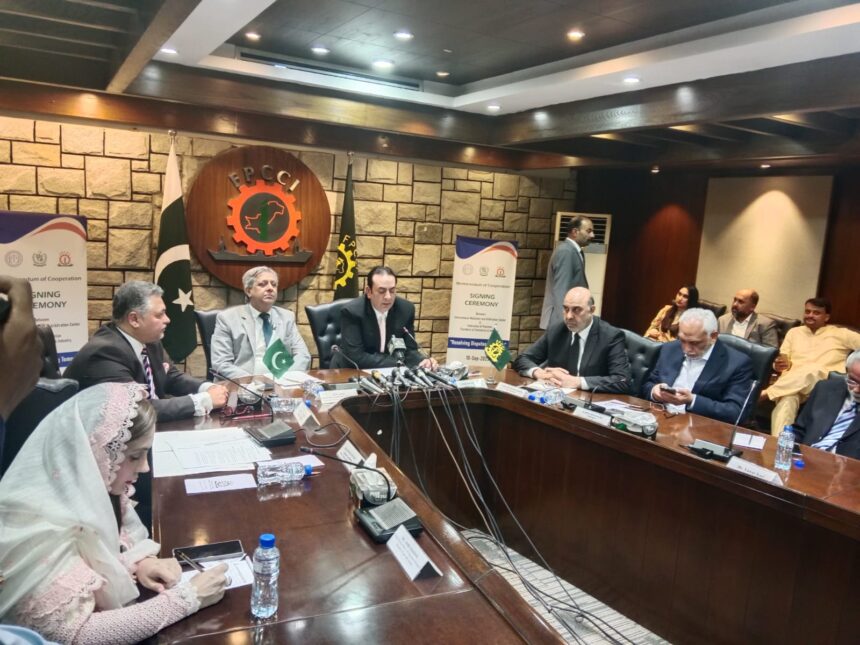The Ministry of Law and Justice and the Federation of Pakistan Chambers of Commerce and Industry, FPCCI, have signed a memorandum of understanding to strengthen cooperation with the International Mediation and Arbitration Council and to introduce mediation and arbitration councils for resolving business disputes. The ceremony was attended by Federal Minister for Law and Justice Azam Nazir Tarrar, FPCCI President Atif Ikram Sheikh and other officials. The agreement aims to promote alternative dispute resolution mechanisms across the business community and support a more favorable environment for economic growth.
The MoU was signed by FPCCI President Atif Ikram Sheikh and IMAC Project Director Ayesha Rasool. Under the agreement, the Ministry of Law and Justice and the FPCCI will collaborate to bolster the mediation and arbitration council system and to establish councils that offer reconciliation and arbitration services for commercial disputes.
Atif Ikram Sheikh described the MoU as a milestone for promoting mediation and arbitration systems between the FPCCI and the Ministry of Law and Justice. He said both organizations will work together to advance alternative mechanisms for resolving business disputes and that the initiative will contribute to creating conditions more conducive to economic development.
Federal Minister Azam Nazir Tarrar emphasized the close link between trade, economic development and national stability. He warned that an overreliance on court litigation drains businesses of time and resources, undermining their ability to earn foreign exchange. Tarrar noted that the International Mediation and Arbitration Council was established last year and that the ministry has certified 600 mediation and reconciliation councils domestically. He highlighted the heavy court backlog, with about 2.4 million cases pending, and said the business community plays a key role in achieving economic sovereignty. He added that alternative dispute resolution is widely preferred around the world.
Officials said the MoU is expected to expand access to faster, less adversarial dispute-resolution options for businesses, reduce litigation pressure on the courts and help foster a more stable environment for investment and trade.











